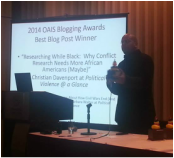
Perhaps the most disturbing aspect of traveling around Rwanda is the ghost of the genocide. One might not know the particulars of what took place in a particular place back in 1990-1994 but one quickly gets a sense. Before going to the country, I read all the books, articles and memoirs I could find. I also saw a tremendous number of pictures of dead bodies – partially buried or floating. I even saw the brief video made by Belgians traveling with the Rwandan Patriotic Front or RPF (the Tutsi rebel organization invading from Uganda) which showed the chaotic, sporadic and highly communicative behavior of those involved in the violence.Individuals came out of the jungle, would say something to one another (likely chiding each other on), a person would hack on a body for a while, walk off, have another screaming match and someone else would hack. They would then walk away and you could see that the body was still alive. What the hell were they saying? Why didn’t they just kill the person? Why did they do it at all? What kind of sick f@%er hacks someone? Who films it, and why didn’t the RPF have some snipers? How can you hack someone? [Note: Like so many artifacts, this video now appears to be lost. If you know where it is posted, please let me know.]
While the genocidal and non-genocidal violence is yet to be explained, part of the explanation needs to be that Rwandans practiced all the time: machetes were everywhere. They were used to hack fruit from trees, to hack limbs for firewood, to hack meat (no butcher, just a blood-red wooden stub); they were used on the side of the road, on the side of a building, in markets, at restaurants, in bars (for lemons – for real), in hospitals, in schools. In fact, I cannot think of one place where I went and did not see a machete.
This reality made one feel surrounded by 8 million potential axe murderers. Sorry to say it but that's the deal. Now, I knew that I did not know who specifically had hacked anyone: even if someone was in jail, had confessed to the crime and sat there in a pink prison outfit (given to those involved in the genocide to embarrass and emasculate), you never quite knew which end was up. People were just arrested because their neighbor wanted their property, because they owed someone money, because someone wanted their spouse or because they had challenged the government. You never knew.
Why confess? You seen Law and Order. Well add machetes. I’m surprised they didn’t have more confessions just to escape the random machete carrier. I suppose there were plenty of shivs in the prison but still.
As a result of this situation, it just seemed easier to me to assume that everyone was guilty – to err on the side of safety. Now, this is no way to interact with folks, thinking everyone is a murderer. In some strange way, however, growing up in New York was good preparation for Rwanda. In the city (well, the one I knew in the 1970s and 1980s, not the new Disney thing on 42nd Street), you thought everyone was trying to "jack you up" – I wasn’t even in a bad neighborhood and this was the opinion.
Still, it is different navigating Rwanda because every time you hear a distant chop or thump, you shudder and wonder. Every hand you shake, you reflect on how hard the callouses are, how strong the grip is. Chop. Then, you wonder if they could have done it. Every pair of eyes you look into, you wonder what they see; what they saw. Chop. Every chicken or goat you see beheaded, you reflect. Chop. Every child you saw, old woman, young man, old man, young woman, you wonder. Chop. How can you have peace when the mechanism of piece creation is around you constantly? People do not seem to check their machetes when they go places, like a hat. They carry them like Handbags, or is it Teabags? Casually, matter-a-factly, constantly, urgently.
In this context, your eyes move constantly. Checking out the most proximate hackers, machine guns, bands of children. You do this at the same time you try not to move your head and body, which would communicate far too much uneasiness, marking one for the taking.
The result: you get physically and psychologically exhausted after being in Rwanda for a while and resolve yourself to your fate and/or faith. Yet another thunderous hack is heard in the distance.

 RSS Feed
RSS Feed
